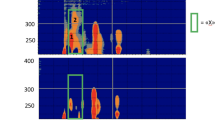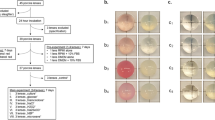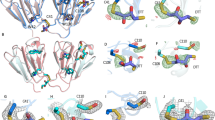Abstract
EXPERIMENTS on the significance of the aqueous humour in the lens's metabolism, which I have been carrying out during the past few years1, have shown that the power of the aqueous humour of cattle and of the rabbit to reduce methylene blue does not depend upon the presence of an enzyme, but essentially upon a reducing substance which is present in the trichloracetic acid filtrate and can be titrated with iodine. The trichloracetic acid filtrate, as well as the aqueous humour in which the protein has been deactivated by heating, obtained from 1 c.c. of aqueous humour, unites with approximately 1 c.c. of a N/500 iodine solution.
This is a preview of subscription content, access via your institution
Access options
Subscribe to this journal
Receive 51 print issues and online access
$199.00 per year
only $3.90 per issue
Buy this article
- Purchase on Springer Link
- Instant access to full article PDF
Prices may be subject to local taxes which are calculated during checkout
Similar content being viewed by others
References
Discussed at the meeting of the German Ophthalmological Society in 1932, by the Basel Society for Research, and at the 1933 meeting of the Swiss Physiologists in Basel.
NATURE, 132, 27, July 1, 1933.
Author information
Authors and Affiliations
Rights and permissions
About this article
Cite this article
MÜLLER, H. Reducing Property of Aqueous Humour. Nature 132, 280–281 (1933). https://doi.org/10.1038/132280c0
Issue Date:
DOI: https://doi.org/10.1038/132280c0
This article is cited by
-
Klinische und klinisch-chemische Untersuchungen am menschlichen zweiten Kammerwasser
Albrecht von Graefes Archiv f�r Ophthalmologie Vereinigt mit Archiv f�r Augenheilkunde (1956)
-
Über den Vitamin C-Haushalt der Altersstarkranken
Albrecht Von Græfes Archiv für Ophthalmologie (1938)
-
Glutathione and Vitamin C in the Crystalline Lens
Nature (1934)
Comments
By submitting a comment you agree to abide by our Terms and Community Guidelines. If you find something abusive or that does not comply with our terms or guidelines please flag it as inappropriate.



